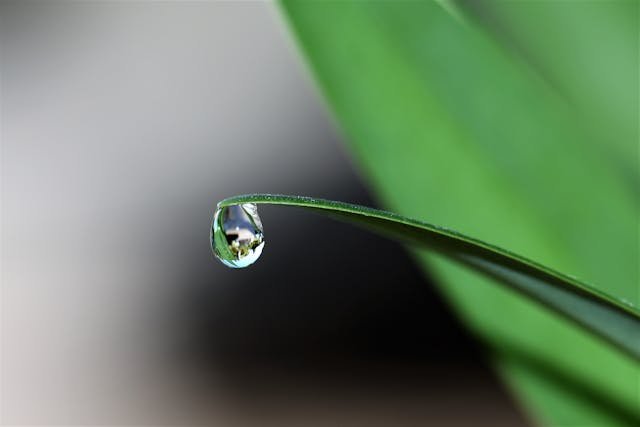Outdoor water conservation is crucial for preserving our precious water resources. By implementing simple yet effective Outdoor Water Conservation tips, we can significantly reduce our water consumption and protect the environment. 1 These tips include watering your lawn and garden efficiently, choosing drought-tolerant plants, fixing leaks promptly, and harvesting rainwater. 2 By adopting these practices, we can contribute to a sustainable future and ensure that water remains available for generations to come.
Understanding Your Landscape For Water Saving
- Assessing Your Water Needs
Start by evaluating how much water your landscape requires. Consider the size of your yard, the types of plants you have, and their watering schedules. Using water conservation sprinklers can help you deliver precise amounts of water, minimizing waste and ensuring each plant gets what it needs. - Climate and Weather Patterns
Understanding your region’s climate is critical. Track seasonal weather trends, such as rainfall or drought conditions, to adjust your watering schedules. Incorporating water conservation technology, like smart irrigation systems, allows you to adapt to changing conditions and reduce unnecessary water usage.

Soil Type
- Plant Selection
Different soil types retain water differently, influencing how much and how often you need to irrigate. Sandy soils drain quickly, while clay holds moisture longer. Pair your soil type with plants that can thrive in those conditions to promote efficient water use. - Creating a Water-Wise Landscape
- Choosing Drought-Tolerant Plants
Opt for plants that require less water and can thrive in your local climate. Native plants are often the best choice as they adapt naturally to the environment, reducing the need for frequent watering. - Grouping Plants with Similar Water Needs
Organize plants by their water requirements to make irrigation more efficient. This technique prevents overwatering and allows targeted use of water conservation sprinklers to save resources. - Mulching to Reduce Evaporation
Applying mulch around plants helps retain soil moisture, reduce evaporation, and keep roots cool. Organic mulches like bark or straw also improve soil quality over time.
- Choosing Drought-Tolerant Plants
Efficient Watering Techniques For Conserve Water
Adopting efficient watering techniques is key to conserving water and maintaining a healthy landscape. By combining smart practices with modern tools, you can reduce water waste and ensure your plants get the hydration they need. Here are actionable tips for effective outdoor watering:
Watering Wisely
- Deep, Infrequent Watering
Water deeply but less frequently to encourage plants to develop strong, deep roots. This technique reduces surface runoff and makes plants more resilient to drought. - Watering in the Early Morning
Watering early in the morning minimizes evaporation and allows moisture to reach the roots before the heat of the day. This also helps prevent fungal diseases caused by nighttime moisture. - Using a Soil Moisture Sensor
Incorporating water conservation technology like a soil moisture sensor ensures you water only when necessary. This device measures soil moisture levels, helping to prevent overwatering and save resources.
Choosing the Right Watering System
- Sprinkler Systems
Opt for water conservation sprinklers designed to deliver water evenly and reduce waste. Smart sprinkler systems with timers or weather-based controls are particularly effective for optimizing water use. - Drip Irrigation
Drip irrigation delivers water directly to the plant’s root zone, minimizing evaporation and runoff. This method is ideal for garden beds, shrubs, and trees. - Soaker Hoses
Soaker hoses provide slow, steady watering directly to the soil, making them a great choice for garden rows and flower beds.
Maintaining Your Irrigation System
- Regular Inspection and Maintenance
Check your irrigation system regularly for leaks, clogs, or damaged components. Timely repairs ensure water is not wasted and your system operates efficiently. - Adjusting Sprinkler Heads
Ensure sprinkler heads are aimed correctly to avoid watering sidewalks, driveways, or other non-landscape areas. Proper adjustment ensures that water reaches your plants without wastage.

10 Additional Tips for Outdoor Water Conservation
- Harvest Rainwater
Install rain barrels to collect and store rainwater for outdoor irrigation. This eco-friendly method reduces reliance on municipal water sources and helps save the water. - Install a Smart Irrigation System
Use water conservation technology, such as weather-based or sensor-controlled irrigation systems, to adjust watering schedules based on real-time conditions. - Choose Permeable Surfaces
Use permeable materials like gravel or porous pavers for pathways and patios to allow water to seep into the soil rather than running off. - Minimize Lawn Size
Reduce the size of your lawn by replacing grass with drought-tolerant plants, native vegetation, or hardscaping to cut water use significantly. - Capture Gray Water
Redirect gray water from sinks or washing machines (using safe practices) to irrigate your landscape, reducing the need for freshwater. - Aerate Your Soil
Aerating your lawn improves water penetration, helping it absorb moisture more efficiently and reducing runoff. - Use Shade Strategically
Plant trees or install shade structures to reduce evaporation from soil and plants, keeping your landscape cooler and conserving water. - Avoid Overwatering
Stick to deep, infrequent watering instead of shallow, frequent watering to encourage strong root growth and minimize water waste. - Install Windbreaks
Use fences, hedges, or shrubs to block wind, which can cause increased evaporation and dry out plants and soil. - Educate and Spread Awareness
Share knowledge about outdoor water conservation practices and the importance of saving water with neighbors and friends to collectively reduce water waste in your community.
Outdoor water conservation is essential for protecting this vital resource while maintaining a sustainable and beautiful landscape. By adopting efficient practices and exploring innovative ways to outdoor water conservation, such as using water-saving irrigation systems, harvesting rainwater, and choosing drought-tolerant plants, you can significantly reduce water waste. Simple adjustments, like watering at the right time, using mulch to retain soil moisture, and maintaining your irrigation system, make a big difference. These efforts not only help to save the water but also promote healthier ecosystems and lower utility costs. Start implementing these strategies today to create a water-efficient outdoor space that benefits both your garden and the planet.

Anamika is a passionate writer for Eco365Store.com, specializing in topics that inspire a cleaner, greener world. With expertise in home cleaning, recycling, and eco-friendly solutions, she crafts engaging and informative articles that help readers adopt sustainable practices in their daily lives.
